This article walks you through the 7 best tips for maintaining a healthy hair you can embrace.
In the search for beauty and wellness, one aspect that often stands out is our hair. It’s more than just a part of our appearance; it can be a reflection of our overall health and well-being.
The quest for luscious, healthy hair is universal, transcending cultures and ages.
Whether you’re looking to enhance your natural texture, combat damage, or simply maintain the vibrancy of your locks, understanding the essentials of hair care is key.
Hair, much like our skin, requires attention and care to look its best. It is susceptible to various factors such as environmental stressors, diet, lifestyle, and even the products we use daily.
Achieving and maintaining healthy hair is not just about aesthetics; it’s also about promoting the vitality and strength of our hair from the roots to the tips.
In this blog post, let’s look at the foundational principles that can help you nurture and protect your hair.
Regardless if you’re aiming for more shine, strength, or overall hair health, the journey starts with understanding what your hair needs and how to provide it.
Be our guest as we uncover the secrets to beautiful, healthy hair, and discover how you can transform your hair care routine into a nourishing and rejuvenating experience.
7 BEST TIPS FOR MAINTAINING A HEALTHY HAIR
1. Use a Gentle Shampoo and Conditioner
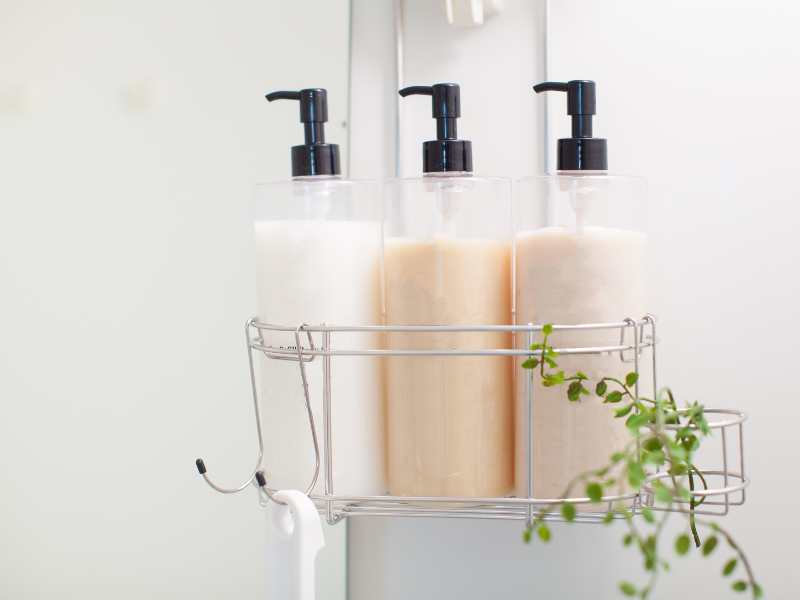
-
Why It Matters: Traditional shampoos often contain sulphates and other harsh detergents that can strip your hair of its natural oils, leading to dryness and damage.
-
Gentle, sulphate-free shampoos help cleanse your hair without compromising its natural moisture balance.
-
How to Choose: Look for products labelled “sulphate-free” or “for sensitive scalp.”
-
For conditioners, choose formulas that provide hydration and repair based on your hair type (e.g., moisturizing for dry hair, volumizing for fine hair).
2. Avoid Over-Washing
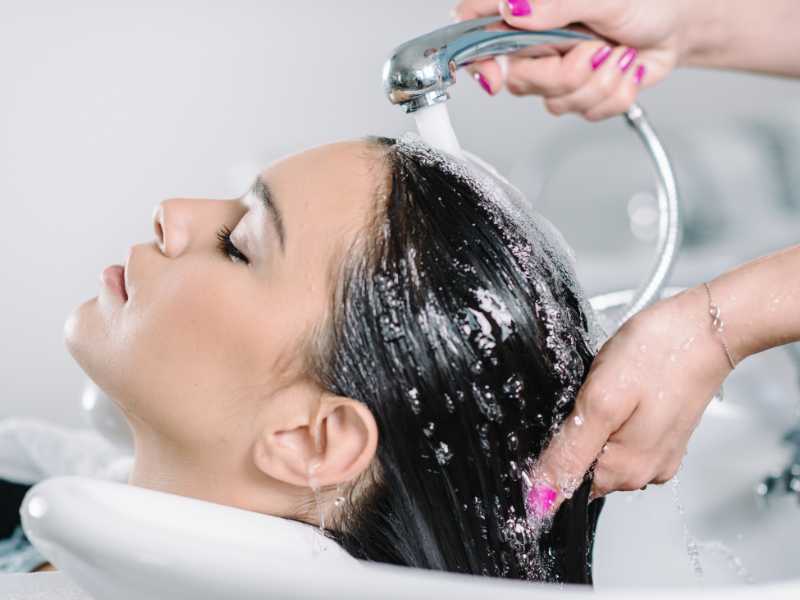
-
Why It Matters: Washing your hair too often can lead to dryness and scalp irritation, as it removes natural oils that keep hair moisturized and healthy.
- Over washing can also lead to an overproduction of oil as your scalp tries to compensate for the loss.
-
How to Manage: Adjust your washing frequency according to your hair type and lifestyle. For instance, if your hair is oily, you might need to wash it more often, but consider using dry shampoo in between washes to extend the time between washes.
3. Condition Regularly
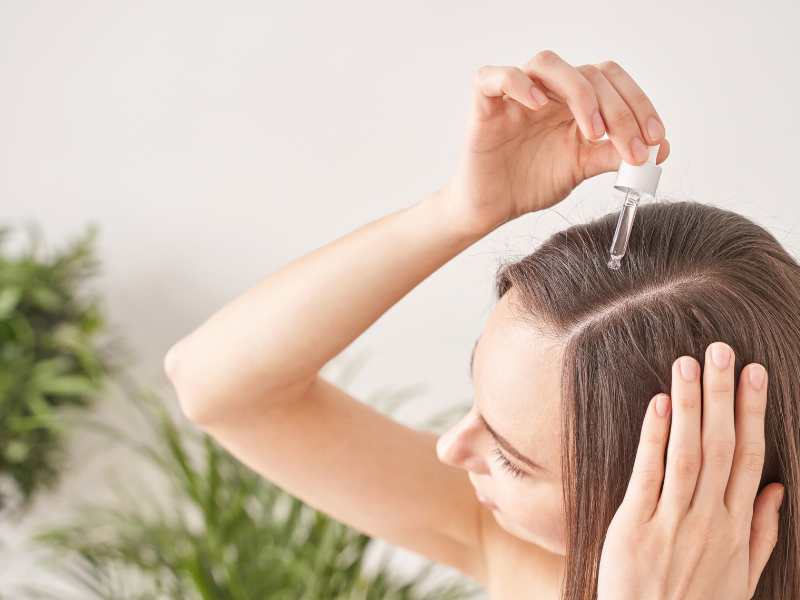
-
Why It Matters: Conditioner helps to replenish moisture, smooth the hair cuticle, and reduce tangling. Deep conditioning treatments are especially beneficial for repairing damage, providing intense hydration, and restoring shine.
-
How to Apply: After shampooing, apply conditioner evenly from mid-lengths to ends. For deep conditioning, leave the product on for the recommended time, usually 10-30 minutes, and consider using a shower cap to enhance the treatment’s effectiveness.
4. Limit Heat Styling
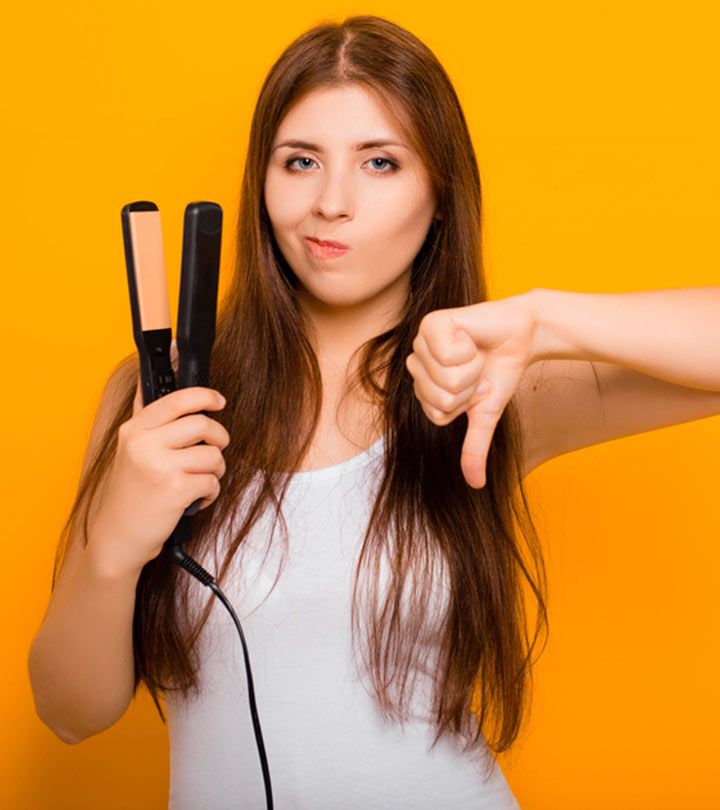
Why It Matters: Frequent use of heat styling tools can cause hair to become dry, brittle, and prone to breakage. Heat damages the hair’s protein structure, leading to split ends and frizz.
-
How to Protect: When using heat tools, always apply a heat protectant spray to shield your hair from damage.
- Try to reduce the frequency of heat styling and embrace air-drying or heat-free styling techniques when possible.
5. Trim Regularly
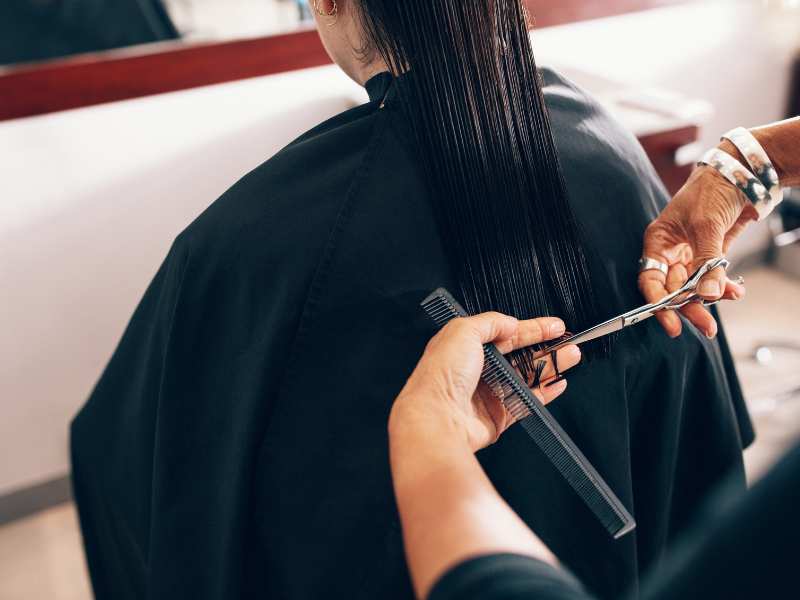
-
Why It Matters: Regular trims help to remove split ends and prevent them from travelling up the hair shaft, which can lead to further damage.
- Trimming also helps maintain the shape and health of your hairstyle.
-
How Often: Aim for a trim every 6-8 weeks, or sooner if you notice split ends or if your hair grows rapidly.
Regular trims will help keep your hair looking its best and support healthy growth.
6. Eat a Balanced Diet

-
Why It Matters: Your diet plays a crucial role in the health of your hair. Essential nutrients like proteins, omega-3 fatty acids, vitamins A, C, D, and E, and minerals like zinc and iron support hair growth and strength.
-
How to Improve: Incorporate a variety of nutrient-rich foods into your diet, such as lean proteins (chicken, fish, legumes), leafy greens, nuts, seeds, and fruits.
Consider consulting a nutritionist to ensure you’re meeting your specific dietary needs for optimal hair health.
7. Stay Hydrated

-
Why It Matters: Proper hydration is essential for maintaining the moisture balance of your hair.
Dehydration can lead to dry, brittle hair and an itchy scalp.
-
How to Hydrate: Aim to drink at least 8 glasses of water a day. You can also incorporate hydrating foods like cucumbers, watermelon, and herbal teas into your diet to help keep your body and hair hydrated.
These explanations should give you a comprehensive understanding of each tip for maintaining healthy hair. Let me know if you need more information on any of these points!
HOW DIET IMPACT HAIR HEALTH
1. Protein

-
Impact: Hair is primarily made of a protein called keratin. Adequate protein intake is essential for hair growth and strength.
A lack of protein can lead to hair shedding and slower growth.
-
Sources: Lean meats (chicken, turkey), fish, eggs, dairy products, legumes, nuts, and seeds.
2. Omega-3 Fatty Acids

-
Impact: Omega-3 fatty acids help keep the scalp hydrated and promote healthy hair growth. They also reduce inflammation, which can improve overall scalp health.
-
Sources: Fatty fish (salmon, mackerel), flaxseeds, chia seeds, walnuts, and algae-based supplements.
3. Vitamins

-
Vitamin A: Essential for cell growth, including hair cells. It helps produce sebum, which keeps the scalp moisturized. A deficiency can lead to dry, flaky scalp and hair loss.
-
Sources: Carrots, sweet potatoes, spinach, and kale.
-
Vitamin C: An antioxidant that protects hair follicles from damage by free radicals. It also aids in the production of collagen, a protein that strengthens hair.
-
Sources: Citrus fruits (oranges, lemons), strawberries, bell peppers, and broccoli.
-
Vitamin D: Plays a role in the hair growth cycle. A deficiency may be linked to hair loss conditions such as alopecia.
-
Sources: Fatty fish, fortified dairy products, and exposure to sunlight.
-
-
Vitamin E: Improves blood circulation to the scalp and acts as an antioxidant, reducing oxidative stress that can contribute to hair loss.
-
Sources: Nuts, seeds, and leafy greens.
-
4. Iron
-
Impact: Iron helps carry oxygen to hair follicles. A deficiency can lead to anemia, which is often associated with hair loss.
-
Sources: Red meat, poultry, fish, lentils, spinach, and fortified cereals.
5. Zinc

-
Impact: Zinc supports hair growth and repair. It also helps maintain the oil glands around hair follicles, which are crucial for scalp health. A deficiency can lead to hair loss and a dry, flaky scalp.
-
Sources: Meat, shellfish, legumes, seeds, and nuts.
6. Biotin

-
Impact: Biotin (a B vitamin) is often recommended for improving hair health because it helps in the metabolism of proteins and fats. Biotin deficiency can lead to hair thinning and loss.
-
Sources: Eggs, nuts, seeds, and bananas.
7. Water

-
Impact: Hydration is key for maintaining the moisture balance of the scalp and hair. Dehydration can lead to dry, brittle hair and an itchy scalp.
-
Sources: Drinking water, as well as hydrating foods like cucumbers and watermelon.
- This is one of the best 7 tips for maintaining a healthy hair.
By embracing a balanced diet rich in these nutrients, you can support optimal hair growth and maintain healthy, strong hair.
If you have specific hair concerns or dietary restrictions, consulting a healthcare provider or nutritionist can provide personalized guidance.
HOW STRESS AFFECT HAIR HEALTH
1. Telogen Effluvium
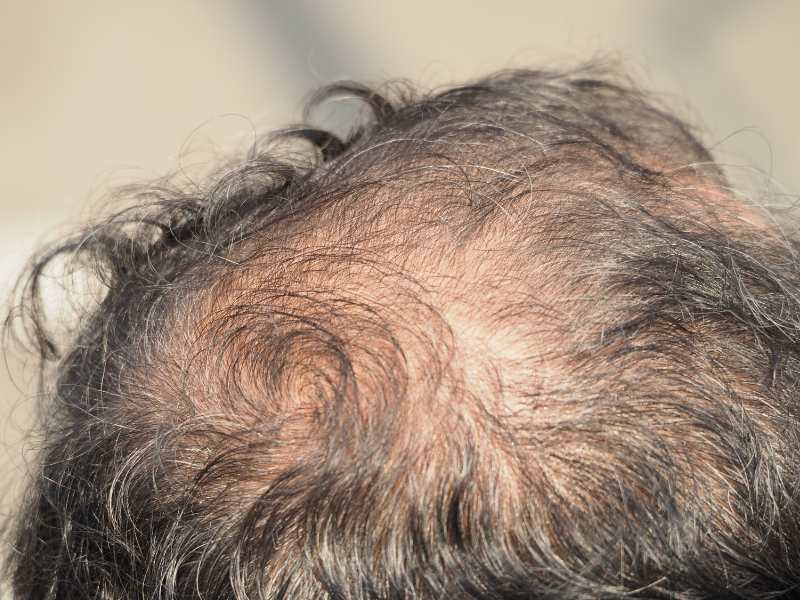
Definition: Telogen effluvium is a condition where a large number of hair follicles prematurely enter the telogen (resting) phase of the hair growth cycle.
How It Works
-
Normal Hair Growth Cycle: Hair grows in a cycle with three phases: anagen (growth), catagen (transitional), and telogen (resting).
Typically, about 85-90% of hair follicles are in the anagen phase, while 10-15% are in the telogen phase at any given time.
-
Impact of Stress: When stress occurs, the body can react by causing a significant number of hair follicles to shift into the telogen phase. This means they stop growing and remain dormant. After a few months, these hairs will shed, leading to noticeable hair loss.
Symptoms
-
Diffuse thinning across the scalp.
-
Increased shedding of hair when washing or brushing.
Recovery
-
Duration: The shedding usually starts 2-3 months after the stressful event and can continue for several months.
Hair growth generally resumes once the stress is managed, but it can take up to 6-12 months for hair to fully recover.
-
Management: Addressing the underlying stress and maintaining a healthy lifestyle can help speed up recovery. In severe cases, consulting a dermatologist may be necessary.
2. Alopecia Areata

Definition: Alopecia areata is an autoimmune disorder characterized by sudden, patchy hair loss. The immune system mistakenly attacks hair follicles, leading to hair loss in small, round patches.
How It Works
-
Immune System Response: Stress can trigger or exacerbate autoimmune conditions, including alopecia areata.
The exact mechanism is not fully understood, but it’s believed that stress can influence immune system activity, leading to attacks on hair follicles.
-
Hair Loss Pattern: The hair loss is typically localized to small patches, but in some cases, it can progress to more extensive areas or even complete scalp loss (alopecia totalis) or total body loss (alopecia universalis).
Symptoms
-
Smooth, round patches of hair loss.
-
In some cases, the skin in affected areas may appear normal or slightly reddened.
Recovery
-
Spontaneous Regrowth: Hair may regrow on its own, but this can be unpredictable. Some people may experience regrowth within months, while others may need treatment.
-
Treatment Options: Treatments may include corticosteroids to reduce inflammation and suppress the immune response, topical immunotherapy, or other medications to manage the condition.
3. Hormonal Imbalances
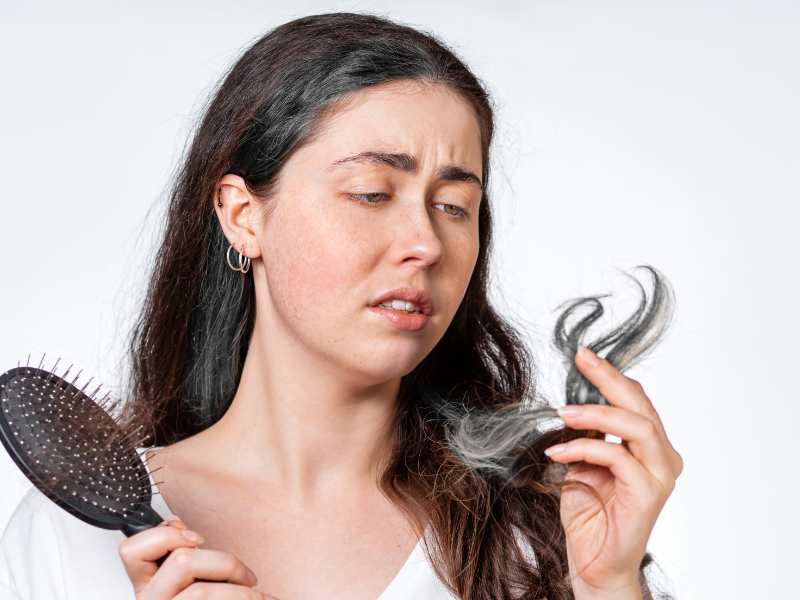
-
Cortisol: Chronic stress can lead to elevated cortisol levels, which can disrupt the normal hair growth cycle. High cortisol levels can push hair follicles into the telogen phase, leading to increased shedding.
-
Other Hormones: Stress can also impact other hormones like thyroid hormones, which are important for maintaining healthy hair.
Impact on Scalp Health
-
Scalp Conditions: Stress can exacerbate existing scalp conditions such as dandruff or seborrheic dermatitis. These conditions can lead to dryness, inflammation, and flaking, which can hinder healthy hair growth.
-
Hair Care: Stress may also lead to neglect of proper hair care routines, and worsening hair and scalp health.
4. Behavioral Factors

-
Hair Manipulation: Stress may cause individuals to engage in repetitive behaviors like pulling or twisting the hair (trichotillomania), which can lead to hair damage and loss.
-
Diet and Sleep: Stress often affects diet and sleep patterns, which can further impact hair health.
Poor nutrition and inadequate rest can contribute to hair loss and slower regrowth.
Managing Stress for Better Hair Health
Stress-Relief Techniques

-
Exercise: Regular physical activity can help lower cortisol levels and improve mood, which may reduce stress and its impact on hair health.
-
Mindfulness and Meditation: Techniques such as meditation, yoga, and deep breathing can help manage stress and promote relaxation.
Healthy Lifestyle

-
Balanced Diet: A diet rich in essential nutrients supports overall health and can mitigate the impact of stress on hair.
-
Adequate Sleep: Ensuring sufficient, quality sleep helps the body recover and manage stress more effectively.
Maintaining a healthy lifestyle is one of the best tips for maintaining a healthy hair you can inculcate.
Stress is an unavoidable part of life, but its impact on hair health can be profound and distressing. From triggering conditions like telogen effluvium to exacerbating autoimmune disorders such as alopecia areata, the effects of stress on hair growth are significant and multifaceted.
Understanding these connections highlights the importance of addressing stress not only for overall well-being but also for maintaining healthy, vibrant hair.
By embracing effective stress management techniques, such as regular exercise, mindfulness practices, and a balanced diet, you can mitigate the adverse effects of stress on your hair.
Additionally, adopting a holistic approach to both mental and physical health can foster a supportive environment for hair growth and recovery.
eventually, while stress may influence hair health, taking proactive steps to manage stress and maintain a healthy lifestyle can make a considerable difference.
If you’re experiencing severe hair loss or stress-related issues, seeking professional guidance can provide tailored strategies to address both the emotional and physical aspects of your health.
including these practices into your routine can help you not only regain control over your hair’s health but also enhance your overall quality of life, leading to a more balanced and fulfilling journey toward well-being.
This post showed you the 7 best tips for maintaining a healthy hair that you can incorporate into your lifestyle for a luscious and healthy hair.